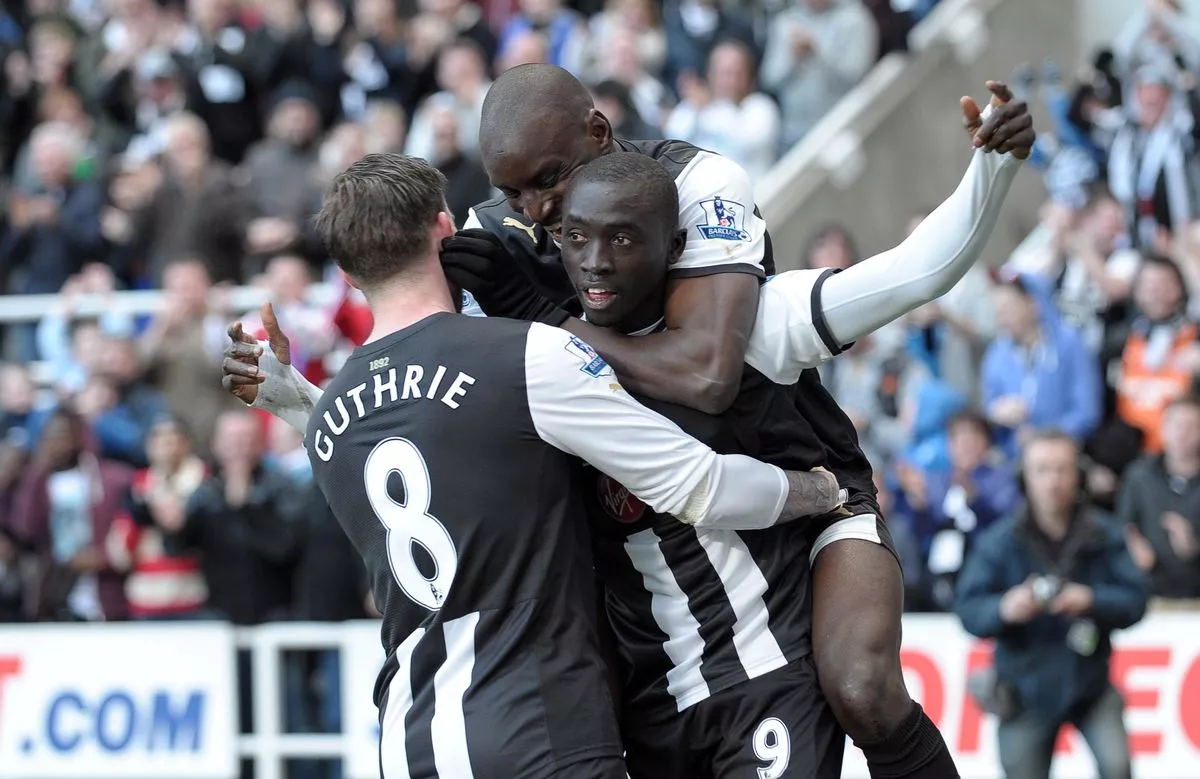Newcastle United’s Dynamic Duo: The Rise and Fall of Ba and Cisse
In 2012, Newcastle United seemed to have discovered a winning formula when they forged a dream partnership between Demba Ba and Papiss Cisse. This duo propelled the team into European competition, marking a thrilling chapter in the club’s history.
The journey began in the summer of 2011 when Newcastle secured Ba on a free transfer. His arrival quickly transformed the team’s fortunes, as he netted an impressive 16 goals by the time his fellow Senegalese striker Cisse joined the ranks in January 2012. Cisse had been a target for Newcastle weeks after Ba’s signing, but the deal with Freiburg was finalized in the winter transfer window. Their partnership quickly became a nightmare for opposing defenses, with Cisse contributing 13 goals in his debut season on Tyneside.
Under the tactical guidance of manager Alan Pardew, the Magpies adopted a versatile attacking strategy. Ba often shifted between the left and right flanks, while Cisse took on a more central role. Alongside talents like Hatem Ben Arfa and Yohan Cabaye, Newcastle’s attack looked capable of challenging for a top-four finish in the Premier League, with Champions League qualification appearing within reach. At one point during the season, Newcastle held fourth place with just three games remaining. However, a disappointing end to the campaign, with two losses in the final three matches, dashed their European aspirations.
As Cisse entered his second season, rumors of tension between him and Ba emerged, particularly regarding who should play as the central striker. With Ba’s goal-scoring prowess declining and Newcastle struggling to maintain form, Pardew faced the challenge of managing this potential discord. Despite the speculation, Cisse downplayed any reports of unrest, emphasizing the positive influence Ba had on his own performance. Reflecting on Ba’s departure to Chelsea after the club activated his £7 million release clause, Cisse expressed sadness, stating, “When he left, it was harder for me. Demba helped me a lot… I could only wish him big success at Chelsea.”
When addressing the positional disagreements, Cisse explained that Pardew encouraged them to adapt their roles based on the flow of each match. “We played a 4-3-3 formation, and it was up to us to decide how we felt on the pitch,” he recalled. This fluidity allowed them to seamlessly switch positions depending on the game dynamics, fostering a strong partnership. Cisse fondly remembered the synergy between him and Ba, as well as the support they received from teammates like Cabaye and Ben Arfa.
Despite their initial success, Newcastle’s European qualification proved short-lived. Following Ba’s departure, the team leaned heavily on Cisse for crucial goals to avoid relegation. He remarked, “The problems really started when we got into the Europa League. We had an amazing team, but once we were in, we realized we didn’t have enough players to handle the demands of European competition, the cups, and the Premier League.”
Injuries plagued key players, leading to a near-relegation battle. Cisse recalled scoring numerous last-minute winners to help the team secure survival, reminiscing about the unforgettable moments during a tumultuous season. “There were still some amazing moments. I look back on those memories fondly,” he concluded.
In summary, while the partnership between Ba and Cisse initially marked a golden era for Newcastle United, the subsequent challenges they faced highlighted the fragility of success in football. Their story serves as a reminder of the highs and lows that define a club’s journey, with moments of brilliance often followed by significant trials.
